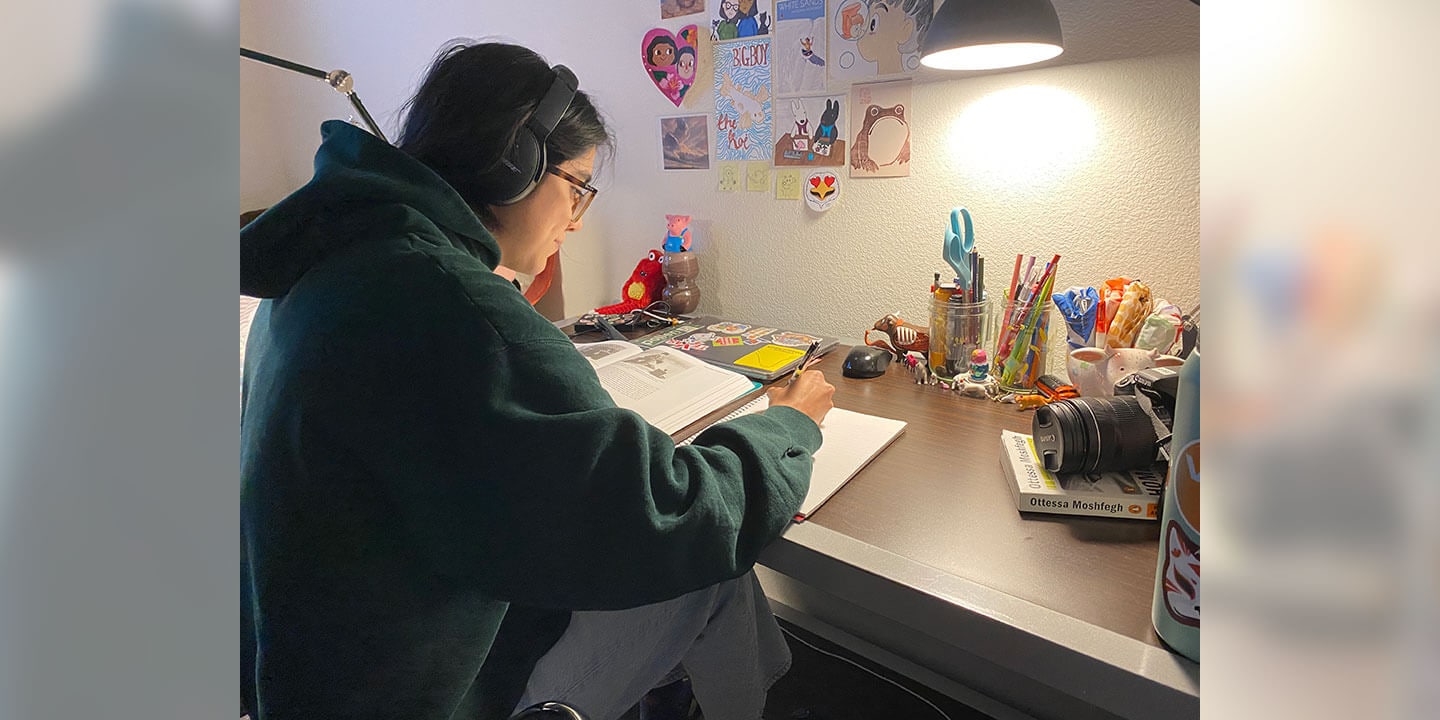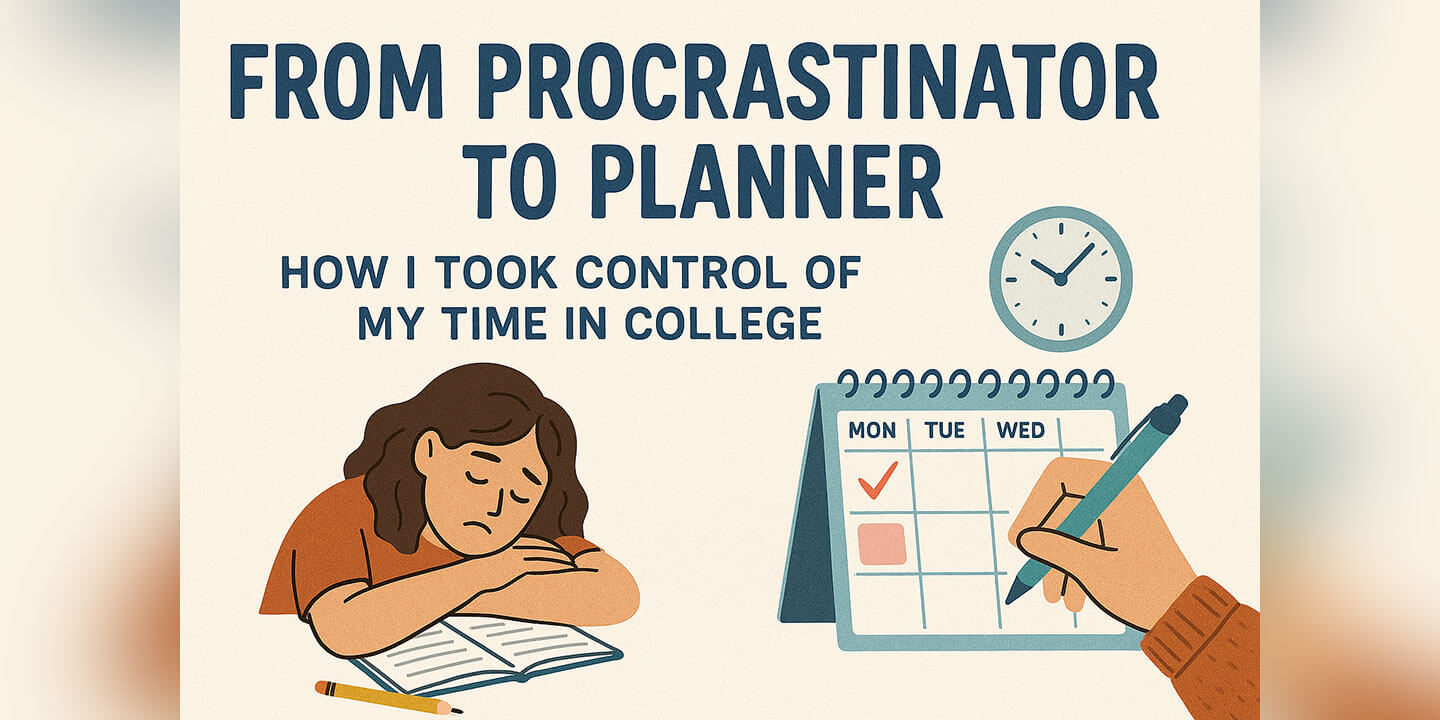
Jumpstarting Your Creativity in College

As exciting as college may be, it’s no secret that some classes are notorious for pushing students past their creative limits. In my freshman year, I remember staying up until the single-digit hours, crouched over my desk in a fetal position, lit only by a dim Target light, wracking my brain for ideas that were due 45 minutes ago. Even after switching to a less artistic major, I still found myself wondering where all those bright ideas from my fresh-out-of-high school brain had gone.
The truth is, sometimes high school doesn’t prepare us to exercise the creative freedoms and ideas that college expects, so we find ourselves under our Target lights stressed, bewildered, and idea-less. Luckily, over the past few semesters I’ve learned a few tips to jumpstarting those creative juices.
1. Ignore everything you’ve been told and get on your phone.
We all know that our main distractions come in the form of dinging notifications and seemingly an endless supply of flashy pictures, but the reality is, there is also a plethora of creative ideas behind our screens. Most of my best project ideas came from things I found looking through my phone. The trick is to know where to look so you don’t end up losing hours mindlessly scrolling. Pinterest and Brainsparker have fantastic visual prompts and the option to make curated boards specific to your project. Unstuck and Simplemind have word-based cues that combat creative blocks. Unconventional places work just as well: Look through Letterboxd or Goodreads to see what people are saying about media related to your topic. Even TikTok is occasionally helpful, if you have enough shame to heed those “you’ve been scrolling for too long!” ads.
2. Take your work outside. Honestly.
I used to find “just go outside!” to be a cop-out when it comes to mental health and brain refreshers, but truth be told, leaving my dim, dark room from time-to-time is exactly what the brain doctor ordered. And I am not anti-dim, dark room – it’s just that sometimes you forget what the sky looks like and what air smells like outside of this space! You may not have a creative epiphany looking at trees, but simply getting distracted by a change of scenery will help you to think outside the box. You don’t literally have to touch grass, but you can at least look at it from a distance.
3. Make a list of topics you actually care about.
Even though it might seem easier to pick a random, seemingly easy topic to write, read, draw etc. about, in the long run you will thank yourself for researching one of your genuine interests. I cannot count the number of times I’ve been grateful to me-from-the-past for picking an assignment topic that aligned with my interests and saved myself the pain of digging through library archives, hunting for an obscure source for something about which I didn’t care. Creative ideas follow naturally when you’re working on something you're enthusiastic about.
4. When in doubt, put a twist on it.
This is like the infamous improv rule: “yes, and”. Look into some completed work that is like your project and make it personal; even if the project isn’t necessarily aligned with your career goals, you can make it work for you. For instance, if you’re an accounting major writing a history paper on vintage movies, you know there are a ton of published research on old Hollywood but, consider looking into how film royalties have transformed over the years. Or if you’re a psychology major who also likes linguistics, you know there’s an abundance of studies on the brain, but what about how different languages affect behavior? Don’t be afraid to get specific– the more specific you are in your topic, the more time you save trying to cover multiple bases, the more confident you will be in your subject (especially if you also follow Tip #3!) – the list goes on.
5. Remember that you are not your grade.
Believe it or not, straining yourself to perfect every tiny detail in your assignment will do the exact opposite for helping your creativity. Getting caught up over small things is kind of like tunnel vision – you miss the bigger picture and potentially creative ideas that truly would have made the project yours. If you are really concerned, I advise keeping extra credit in mind, but remember that the best creativity comes from treating yourself like a friend. Trying to force a revolutionary idea out of an overworked, overstressed mind is like trying to make cold brew out of a single coffee bean. Cut yourself some slack and be proud of what you have gotten done. As endearing as the Canvas confetti is, real life celebrations are even better.
Do you have a compelling story or student success tips you’d like to see published on the Pearson Students blog? If you are a college student and interested in writing for us – click here to pitch your idea and get started!
About the author

Zoe Pitts
Zoe Pitts is a student at the University of North Texas studying Communication and New Media Art. She currently works as a Pearson Campus Ambassador at UNT and as and a Grader and Alumni Project Coordinator for the G. Brint College of Business. As an art lover, Zoe is involved with a BIPOC Artist student organization and frequently participates in drawing contests. In her spare time she enjoys binge-watching Marvel shows, practicing French, and hanging out with friends.


